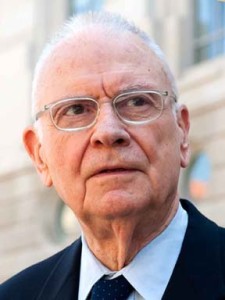
If there’s a theme that sets this political season apart, it’s the voters’ utter disdain for most of the people who practice politics. They’re fed up with politicians, they’ve lost faith and confidence in the political elite, and they don’t believe that the realm where politicians ply their craft – government – works.
There are many legitimate reasons for these people to be turned off by the way politics has been practiced and to be discouraged by the way the political system appears to work. But I’d argue that if you’re hell-bent on shaking up the system, you also need to understand it – and understand that certain features are likely to persist no matter how hard you try to change them.
The first is that it is very hard to make our representative democracy work. We make progress incrementally, over years if not generations. So you have to approach politics with great patience. Our system discourages the rush to judgment – it puts a premium on including as many voices as possible, which takes time in a complicated country.
Many people are also turned off by what lies at the center of our system: deal-making. This involves a clash of ideas in the public arena, compromise, and negotiation, which make a lot of Americans uneasy.
Yet it’s how we resolve our differences – and has been since the first day of the United States’ existence.
So politicians who insist on purity impede solutions. There ought to be a healthy tension between idealism and realism, but we have to find a pragmatic way to combine them. This makes it challenging to come to an agreement on complicated issues, but it’s necessary to keep the country from coming apart.
We cannot look to government to solve all our problems. Indeed, we live in an era in which government faces more and more problems it cannot effectively deal with. Increasingly, citizens have to step forward and fill the void that government leaves. We may well be moving into the century of the citizen.
Our communities and lives are better because of citizen action. Indeed, unless citizens boost their involvement and contributions, many of our problems will not be solved.
Lee Hamilton is a Senior Advisor for the Indiana University Center on Representative Government; a Distinguished Scholar, IU School of Global and International Studies; and a Professor of Practice, IU School of Public and Environmental Affairs. He was a member of the U.S. House of Representatives for 34 years.
Lee H. Hamilton






